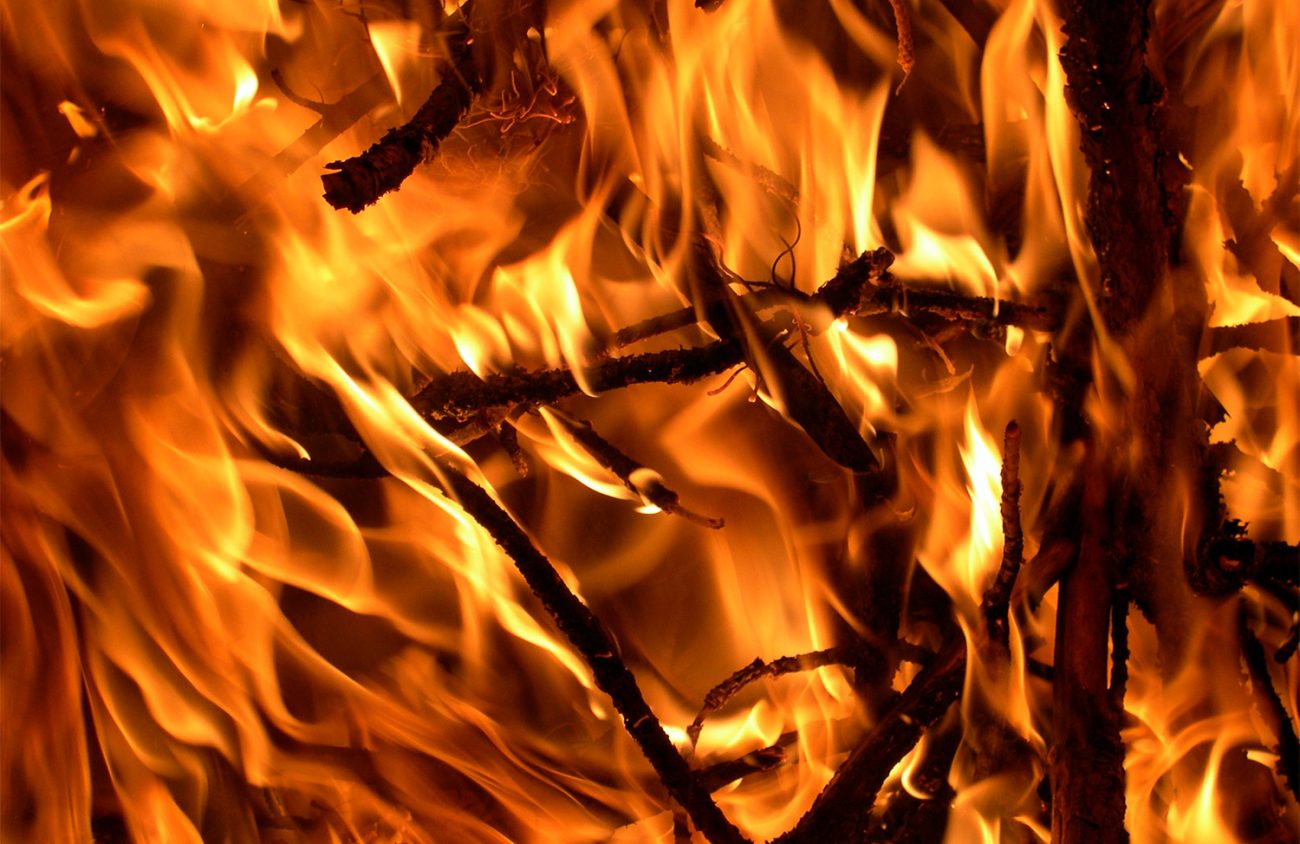A single spark could light up the dead grass and blackberry bushes blanketing the sidewalks and alleyways of Eugene’s neighborhoods. Even with this summer’s bone-dry weather — the U.S. Drought Monitor says Lane County is experiencing severe to extreme drought — the city of Eugene’s current vegetation code allows property owners upwards of a month to dispose of dry debris.
Although Eugene saw a brief reprieve with some late August rain, those small showers didn’t dampen the tinderbox that could threaten homes in south Eugene. On Emerald Street between 35th and 38th avenues, an area of dried trees and blackberry bushes has been waiting for a spark, says Charlie Larson, a Eugene resident who has lived in the city since 1950.
“Perhaps we’ve been given a few extra days of grace since the weather has been cooler and we’re heading into September,” Larson wrote in an email to Eugene Weekly. “But Eugene may have to discover painfully it’s more vulnerable than Redding if the big trees catch on fire on one of those hot days. There won’t be a way to contain it.”
The possibility of a huge fire caused by a few sparks isn’t unheard of. The Carr Fire in California started after sparks from a flat tire ignited dry brush on the side of the road. It destroyed hundreds of homes in Redding and killed eight people.
In Eugene, Larson noticed the build up of dry debris and contacted city officials, including City Manager Jon Ruiz and Eugene-Springfield Deputy Fire Marshall Merrill Harrison, several times to alert them to the fire hazard.
Michelle Parkins, Eugene’s code enforcement officer with the city’s Urban Forestry Department, says the department responds to complaints that residents submit, and that the department is not primarily worried about aesthetics.
“Blackberries are a nuisance, but the tall grass and weeds are a fire hazard,” she says.
Parkins is the city’s sole vegetation code enforcement manager, with only one additional seasonal employee from May to October.
When Parkins receives a complaint, she completes an inspection and documents a code violation should one occur. A notice is sent to the property owner as well as the resident living at the property, and they have 10 days to comply with city code.
Parkins says the ultimate goal is for the resident or property owner to voluntarily comply with the city code, and that she is open to working with residents who may need more time.
If Parkins does a second inspection and the property is not in compliance, an abatement notice giving the owner another 10 days is posted on the property and sent through the mail. If the order is not completed, the city takes care of the work and then bills the owner.
But for Larson and others, this month-long process seems shortsighted when a spark could ignite the powder keg of dry debris in a second. He contacted his city councilor, Betty Taylor, about the fire hazard.
“I agree that this is not enough — or soon enough,” Taylor wrote in an email to Larson.
Taylor isn’t only concerned with the current fire hazard that dry debris poses — in the past she has tried to ban consumer fireworks because of Eugene’s parched summer conditions.
“It’s really dangerous because it’s almost always dry here in the summer, and a spark can cause something that can sweep through [a neighborhood],” Taylor says.
For Taylor, the process of notifying owners multiple times and giving them more time to comply with the code could increase the risk of a fire.
“If it’s a dangerous thing, I think it should be less time than that,” Taylor tells EW, adding that if it’s dangerous it should be removed immediately. “I think a week would be long enough, but you need to find out if the person is in town.”
Taylor has brought up the timeliness issue with the Eugene City Council several times, but the matter has been postponed. The council is not in session until later this month, and Taylor says that changing the nuisance code is on the city council’s agenda for November.
“It’s too late to take care of things this summer, but for next summer,” Taylor says.
With the City Council out of session, the possibility for a fire grows every day, and for now Eugeneans can only hope for cooler skies and raindrops.
Information about Oregon’s drought conditions can be found on drought.gov.
